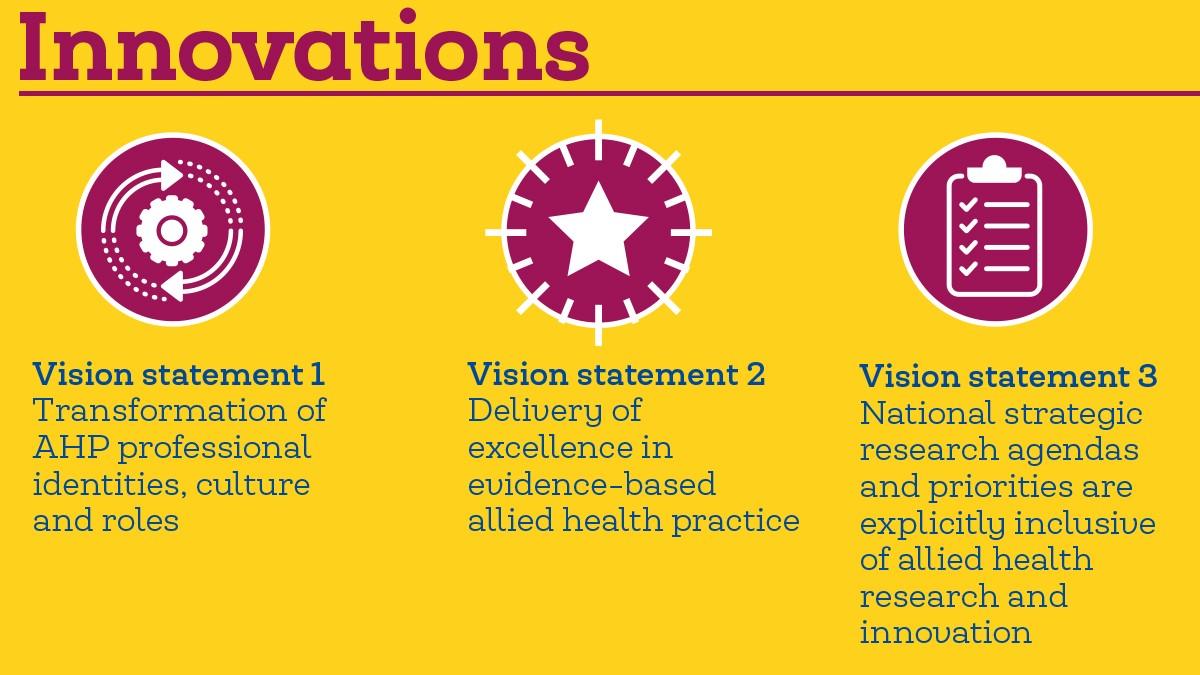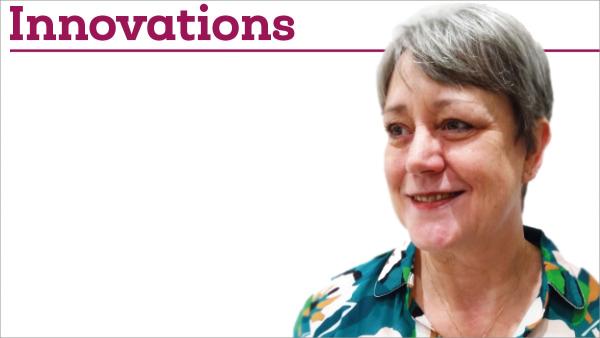Hazel Roddam shares why the Allied Health Professions’ Research and Innovation Strategy is important for all physio roles and career stages

What does the strategy mean for AHPs at all career stages?
The strategy is directly relevant to all AHPs and support workers. It sets out clear expectations for research and innovation to be integral to all aspects of professional practice, not a bolt-on-luxury, or an elitist interest.
More support is needed for individuals who want to participate in, deliver, or lead research, innovation and service

improvements. This strategy includes pathways for both clinical-academic and academic careers, with better employment prospects.
It also sets out clear directives for ensuring that the wider workforce can effectively implement new evidence into practice, to benefit the individuals who need AHP services.
Service managers also need to have relevant support to demonstrate and champion the value and impact of research, innovation and service improvement activities and roles in their teams.
What does it mean for students and educators?
This strategy explicitly focuses on both the current and the future workforce.
It includes specific objectives to support a research-confident and research-ready workforce. This includes expectations and guidance for research-informed teaching and development of research placement options.
How will this improve the quality of patient services?
The key driver for this strategy is quality improvement, excellence in care and service user experience. It’s essential that all our services are underpinned by the best knowledge base, including scientific research complemented by real-world evidence directly relevant to our patients. This strategy spans the historic gap between researcher and clinician communities, bringing together their respective expertise, experience and insights.
How are we implementing the strategy?
We are working to ensure that AHP research, innovation and service improvement is explicitly included in the strategic priorities and operational plans of all national, regional and local stakeholder initiatives. For example, this strategy is embedded as one of the enhanced foundations in the AHPs Deliver Five-Year Strategy, launched in June. That reinforces the expectation that culture change for research and innovation needs to be driven from ‘grassroots’ upwards, as well as being supported through systems, processes and infrastructure.
What is the role of CAHPR?
The Council for Allied Health Professions Research (CAHPR) is the collective voice to promote the agenda for AHP research, innovation and quality improvement. Their national strategy board have been central to the development, launch and implementation of this strategy. Find out more about CAHPR’s influencing work and free access resources at cahpr.csp.org.uk
How has CSP been involved?
The CSP has been actively involved in the development and ongoing implementation of this strategy.
To mark the anniversary of the strategy launch, the CSP is hosting an online event on behalf of all the AHP associations on 25 January 2023 10.30am–2.30pm. Be the first to hear our invited presentations and announcements about the very latest research and innovation news, opportunities, networks and links.
And watch our selected exemplars to showcase the value and impact of AHP research and innovation. Look out for the future booking link through the CSP.
What are the key visions of the strategy?
Each vision statement is underpinned by a strategic aim plus a number of strategic objectives, with descriptors of ‘what good looks like’.
- Vision statement 1
Transformation of AHP professional identities, culture and roles.
- Vision statement 2
Delivery of excellence in evidence-based allied health practice.
- Vision statement 3
National strategic research agendas and priorities are explicitly inclusive of allied health research and innovation.
Comment from the CSP
Bringing this research and innovation vision to life is a key priority for the CSP over the next five years. It is being integrated in our UK-wide ‘Quality Improvement, Innovation and Research’ ‘Physiotherapy Health Informatics Strategy (PHIS)’, and ‘Careers Framework’ projects.
To deliver best care for patients and high quality clinical services, it is vital that physiotherapists and support workers are actively engaged with improvement, innovation and research as a core part of their everyday work. To support our members in achieving this, the CSP will be developing resources to grow skills, confidence and capacity across quality improvement, innovation and research.
Look out for upcoming articles in Frontline that will share more information about the strategy and how improvement, innovation and research can be integrated and championed in practice.
- Matthew Liston (CSP head of research and development) and Jonathan Quicke (CSP research into practice adviser)
Find out more about the AHPs’ Research and Innovation Strategy
- The strategy was co-produced by 14 AHP associations and launched in January
- You can download the strategy and resources here from the Allied Health Professions’ Research and Innovation Strategy for England website.
- Five minute video and one page flyer here
Promoting a culture shift – ‘Research is everybody’s business’
The strategy addresses four key areas required for transformational impact and sustainable change
- capacity and engagement of the AHP workforce community, to implement research into practice.
- capability for individuals to undertake and achieve excellence in research and innovation activities, roles, careers and leadership.
- context for AHPs to have equitable access to sustainable support, infrastructures and investment.
- culture for AHP perceptions and expectations of professional identities and roles that ‘research is everybody’s business’.
Get in touch
For more information contact the project lead Dr Hazel Roddam with comments, questions and your own experiences – Hazel.Roddam@hee.nhs.uk
Look for updates on social media – @NHS_HealthEdEng@HazelRoddam1@OfficialCAHPR#AHPResearch
Find Out More
Number of subscribers: 1
